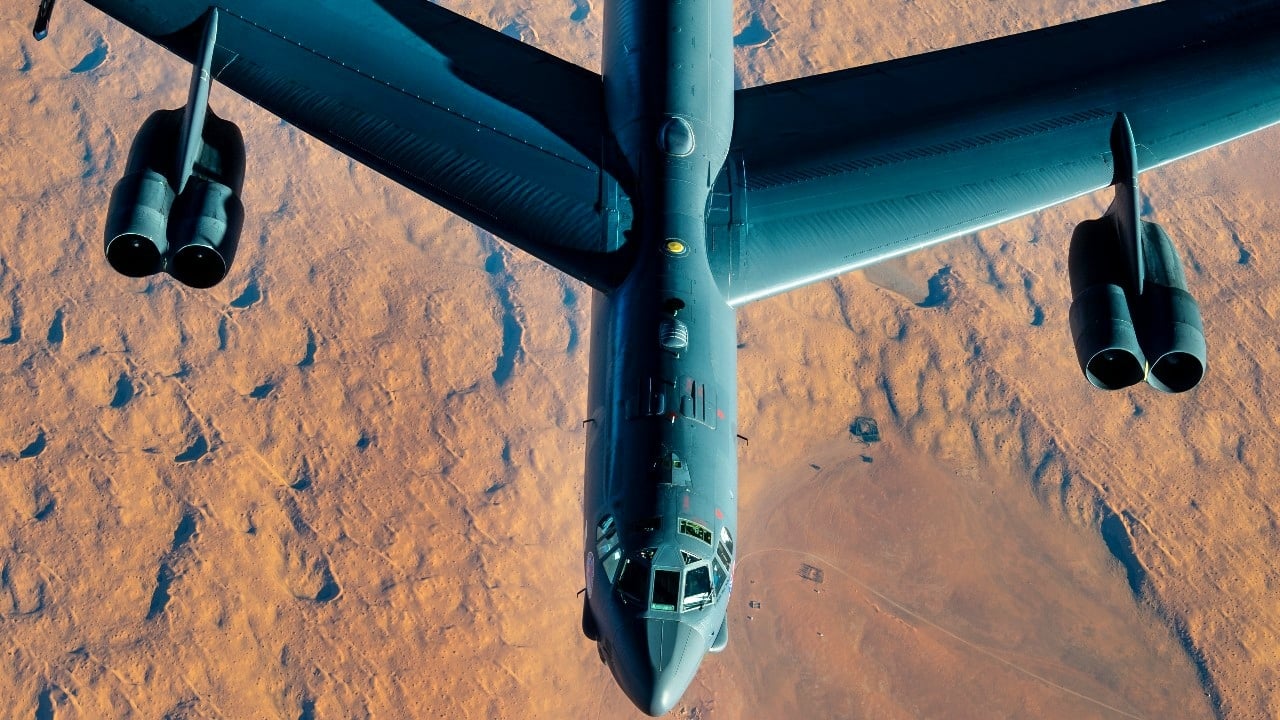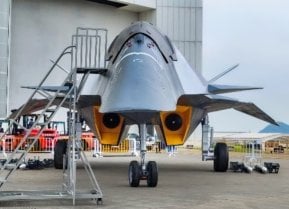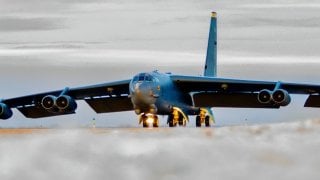Air Force B-52J Bomber Can Be Totally Explained in 3 Words
The B-52J is the latest planned variant of the iconic B-52 Stratofortress bomber, with test flights scheduled for 2028 and operational deployment expected by 2033. This update aims to extend the aircraft's service life beyond 100 years.
Running Really Late: The B-52J is the latest planned variant of the iconic B-52 Stratofortress bomber, with test flights scheduled for 2028 and operational deployment expected by 2033. This update aims to extend the aircraft's service life beyond 100 years.

-The B-52J will feature new Rolls-Royce F130 engines for improved fuel efficiency and stealth performance, along with a modern radar system borrowed from the F/A-18 Super Hornet. Despite lacking inherent stealth capabilities, the B-52J compensates with its ability to carry a massive payload of up to 70,000 pounds of mixed ordnance, including advanced weapons like hypersonic missiles.
-This modernization ensures the B-52 remains a relevant and formidable asset in contemporary combat scenarios.
B-52J Stratofortress: The Future of America's Iconic Bomber Begins in 2028
The B-52J won't begin test flights until 2028, and this latest variant of the B-52 Stratofortress won't become operational until 2033. But when the bomber finally does join the Air Force rotation, it will carry an impressive array of weapons, and it will carry them in strong numbers.
Updated for the Future
The B-52 has been a stalwart of the U.S. Air Force since the 1950s. Eighty years after its introduction, the bomber is still relevant, with new variants planned to extend the airframe's service life for decades to come. Indeed, the B-52 will likely reach the 100 year mark of active-duty service.
When the B-52 first flew, aviation itself was only 50 years old, so as of today, the B-52 has been in the Air Force for more than half of the time that humans have been flying airplanes. Along the way, it has received consistent upgrades – to avionics, engines, weaponry, and more – allowing the 50s-era airframe to stay useful in a modern air force.
The B-52J is the latest iteration, with a new Rolls Royce F-130 engine that promises to improve fuel efficiency and stealth performance. It also brings a new radar system borrowed from the F/A-18 Super Hornet, as well as improved weaponry.

Modern Weapons on a Vintage Platform
Bomber aircraft serve a single purpose: to deliver weapons on target. So the weapons a bomber carries are central to its purpose, and the B-52 has never been a slouch with respect to weaponry. The Stratofortress can carry up to 70,000 pounds of mixed ordnance, including bombs, mines, and missiles, in a variety of different configurations.
That is a massive payload. World War II-era B-24 Liberators had a maximum payload of 8,000 pounds for short-range flights. The B-52 can also carry nuclear ordnance: Its G and H variants can carry up to twenty AGM-69 SRAM nuclear missiles.
The J variant promises even better weapons capabilities.

“The B-52J is expected to be a versatile platform, capable of carrying a wide range of weapons, from gravity bombs to cruise missiles and hypersonic weapons,” Brandon Weichert writes. “This flexibility will allow the bomber to engage the enemy with ‘affordable mass,’ precision-guided munitions, and highly specialized, ‘exquisite’ weapons as needed.”
Compensating for a Lack of Stealth
The B-52 is somewhat anachronistic, as the rest of the Air Force relies on stealth technology. The Stratofortress, of course, was developed before the advent of stealth, and it is not fit to fly in contested airspace. Still, the Air Force is betting on the B-52 to deliver enough of a payload to compensate for the shortcoming. Sometimes, as Air Force doctrine implies, an old-school bomber – albeit with updated weapons – is sufficiently equipped for contemporary combat.
About the Author: Harrison Kass
Harrison Kass is a defense and national security writer with over 1,000 total pieces on issues involving global affairs. An attorney, pilot, guitarist, and minor pro hockey player, Harrison joined the US Air Force as a Pilot Trainee but was medically discharged. Harrison holds a BA from Lake Forest College, a JD from the University of Oregon, and an MA from New York University. Harrison listens to Dokken.
From the Vault
Russia Freaked Out: Why the U.S. Navy 'Unretired' the Iowa-Class Battleships
Battleship vs. Battlecruiser: Iowa-Class vs. Russia's Kirov-Class (Who Wins?)


